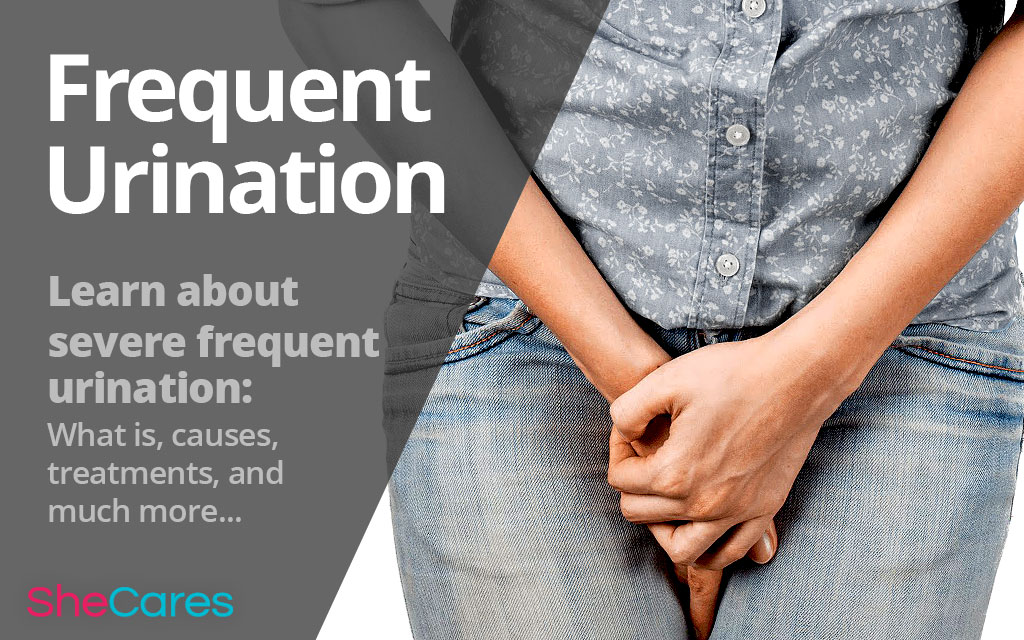If you are experiencing frequent urination, it could be that you are suffering from urge incontinence. This condition can be inconvenient at best, but many women find it to be exasperating, particularly when it regularly affects their day-to day-life. Although coping with a frequent urge to urinate can of course be difficult, you may find it helpful to understand some of the reasons behind it, as well as ways to treat or manage the condition. Below, find a straightforward guide to develop your knowledge.
About Frequent Urination
Urge incontinence refers to a frequent and sudden urge to urinate. It occurs when the bladder muscles contract involuntarily, sending signals to your brain that then cause the sensation of needing to urinate, despite the fact that the bladder might not be full.
Causes
There is a range of causes of frequent urination, stemming from a malfunction of signals between the bladder and the brain. In some women, unfortunately, the cause may never be known; however, some of the most common are:
- Hormonal imbalance. Estrogen fluctuations in particular are the main reason for incontinence. Estrogen helps to keep a woman's muscles strong, even the muscles that enable her to maintain bladder control. It also contributes to the health of the urinary tract lining. When estrogen levels shift - such as during the menopause transition - frequent urination may result.
- Neurological disorders. Those who have suffered from a stroke or multiple sclerosis are unfortunately considerably likely to experience urge incontinence. This may be due to the fact that damage has been caused in the area of the brain that receives signals from the bladder. In this case, some women feel that they urgently need to use the bathroom, only to find that there is little to no urine to be passed.
- Urinary tract infections. If bacterias are present in the urinary system, it can cause cystitis or urethritis. Both of these can lead to involuntary contractions of the bladder, which will then send a signal to the brain and cause an urgent need to urinate. If this is the reason behind your frequent urination, it is likely that you will experience some pain or a burning feeling.
- Bladder inflammation. In addition to infections, some other conditions - or even certain foods and drinks - can cause inflammation of the bladder. Caffeine and carbonated beverages in particular are known to aggravate the bladder, and can cause it to contract due to sensitivity to these substances.
- Urinary tract blockage. This is not very common among women; however, frequent urination can sometimes be caused by an obstruction in the bladder outlet, such as a cyst. If this is the case, the urine stored in the bladder is less likely to be able to completely empty, and so the sensation of needing to urinate will occur with greater frequency.
Treatments
Depending on the reason behind your frequent urination, there are several methods that can be successful in managing - if not treating - the condition. Below are some natural ideas that you can try at home.
- Consuming cranberries. Although not scientifically proven, many herbalists suggest cranberry juice or supplements be taken for treating urinary tract infections. It is thought that their acidity prevents bacteria from sticking to the urinary tract, and many women find that cranberry preparations can be effective in clearing the infection, therefore ending urge incontinence.
- Avoiding certain food and drink. It may take some patience and considerable experimentation in order to find out if your bladder is sensitive to some food and drink, but as mentioned above, caffeine and fizzy beverages can commonly aggravate the urinary system in some women.
- Retraining your bladder. Even if you are not sure of the reason behind your urge incontinence, this simple technique may be beneficial to you. It involves trying to lengthen the time between each bout of urination. When you feel the urge to void your bladder, try to hold on for another five minutes or so. In doing this, eventually your bladder should be able to store more urine than before, and so it will need to be emptied less often.
Unfortunately, if your frequent urination is a result of a neurological problem, it is difficult to manage without a doctor's assistance. Protection techniques can be advised, such as wearing incontinence pads and using absorbent bedding.
Urge incontinence is unfortunately substantially common among women, especially when they grow older and are approaching their menopausal years. One plus is that there is a variety of treatments and preventative methods. Additionally, there are numerous studies and further scientific research being carried out exploring other potential causes and treatments.
Sources
- Continence Foundation of Australia. (2017). Urge incontinence. Retrieved May 3, 2017, from https://www.continence.org.au/pages/urge-incontinence.html
- Mayo Clinic. (2015). Frequent Urination. Retrieved May 3, 2017, from http://www.mayoclinic.org/symptoms/frequent-urination/basics/causes/sym-20050712
- National Institutes of Health. (2015). Urge incontinence. Retrieved May 3, 2017, from https://medlineplus.gov/ency/article/001270.htm
- Yande, S. & Joshi, M. (2011). Bladder outlet obstruction in women. Journal of Mid-Life Health, 2(1), 11-17. Retrieved from https://www.ncbi.nlm.nih.gov/pmc/articles/PMC3156494/
